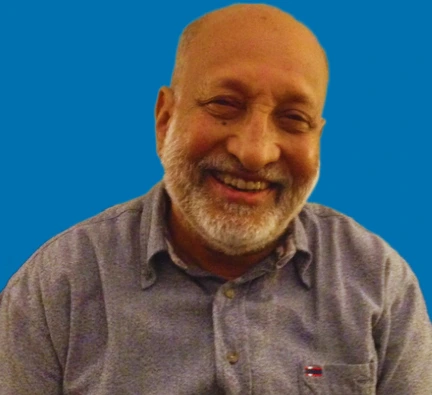India: ‘Democratic theocracy’
I WAS BORN in the hill town of Haflong in India’s Assam state. Surrounded on three sides by forests and hills, Haflong looks somewhat like Innsbruck, the lovely Austrian city, also flanked by hills.
Last week I got a call from a Muslim friend in the Assamese town of Nagaon, where my father taught at an Islamic seminary. “Come see the kind of hate that Himanta and Modi have fed to Hindus,” said Munim (I’m reserving his last name to keep him out of trouble with Hindu nationalists.)
Himanta Biswa Sarma, Assam’s chief minister, belongs to the ruling Hindu nationalist Bharatiya Janata Party (BJP) of Prime Minister Narendra Modi. The BJP and other Hindu nationalist groups have been carrying on a relentless anti-Muslim pogrom to marginalize Muslims, the largest religious minority, and replace the once-secular India with a Hindu Rashtra, Hindu theocracy.
“Two days ago, my niece came home from school, crying,” Munim said. A Hindu boy had grabbed the breast of the pretty, 15-year-old girl and said, “Say, Joi Shri Ram,” hail Lord Ram. Ram is a Hindu god. When Hindu nationalist vigilantes swoop upon a Muslim, they often make him or her chant “Joi Shri Ram,” while beating up the victim.
A week before, Munim’s niece had given the boy an earful for pinching her in the buttock.
“Did you report this to the police?” I asked Munim.
“Police?” my friend laughed. “They are Himanta’s lackeys.” They would arrest him, branding him a “Pakistani terrorist.” Mostly Muslim Pakistan is the archenemy of the neighboring mostly Hindu India.
I live in Bangladesh and continually travel down memory lane in my native India, visiting friends and relatives and having medical checkups. The anti-Muslim pogrom raging there makes me wonder how long it would take the Hindu nationalists to turn the country into what American sociologist Peter Berger called a “democratic theocracy.” The campaign to subjugate or drive out Muslims, 14 percent of the Indian population, has overwhelming support among Hindus, who make up 80 percent.
On April 10 I was chatting with a progressive Hindu friend in his living room in the Indian city of Mumbai. Suddenly a news bulletin flashed on his TV screen, saying, “Muslim extremists” had attacked a group of Hindus in Kilgore in Madhya Pradesh state.
The story unfolded in the Indian media in the following days. Some Hindus had chanted anti-Muslim slogans and played an anti-Muslim song at a mosque in Kilgore, where Muslims were praying. Muslim youth around the mosque responded by throwing stones, slightly injuring several Hindus. Before any investigation into the incident could start, the Madhya Pradesh home minister, Narottam Mishra, announced: “The houses from where the stones were pelted will turn into rubble.” Soon 16 houses and 29 shops belonging to Kilgore Muslims were burned down while Hindu crowds cheered.
Lynching, slapping and flogging Muslims in public and demolishing Muslim homes and businesses without legal authorization have become the norm in India.
India is a multi-national country where ethnic and religious communities enjoyed wide autonomy under loosely administered kingdoms and empires for millennia. When the British colonial empire dissolved in India 76 years ago, the country was reorganized into a “nation-state” to run through a majoritarian democracy. A British Cabinet delegation had proposed a confederation of what had been “British India” to allow Hindu- and Muslim-majority provinces wide autonomy to let their religious and ethnic communities live their cultural and social lives relatively freely and comfortably. Indian leaders turned down the Cabinet Mission Plan.
The secular democratic institutions introduced by India’s Western-educated founders (Mahatma Gandhi, Jawaharlal Nehru, Vallabhbhai Patel) often clash with Indians’ community life and religious values. Westminster-style democracy has now allowed Modi’s virulently anti-Muslim BJP to come to power in New Delhi and use the unconstrained institutions of a majoritarian democracy to persecute and marginalize Muslims.
Secular democracy hasn’t taken root in Muslim, Jewish or Buddhist societies, either. But, as Canadian philosopher Charles Taylor has pointed out, Hindu nationalists are more ruthless than most other religious bigots. They are “people without any piety at all,” he said, and hence their persecution of the Muslim minority has been so brutal.
Democracy is the inevitable destiny of non-Western societies, and I’m hoping that globalization and global pressures for human rights will eventually infuse tolerance toward minorities in Indian and other non-Western societies.
- Mustafa Malik, the host of the blog After the Clash, worked for nearly four decades as a reporter, columnist and editor for American newspapers and as a researcher for two American think tanks.

